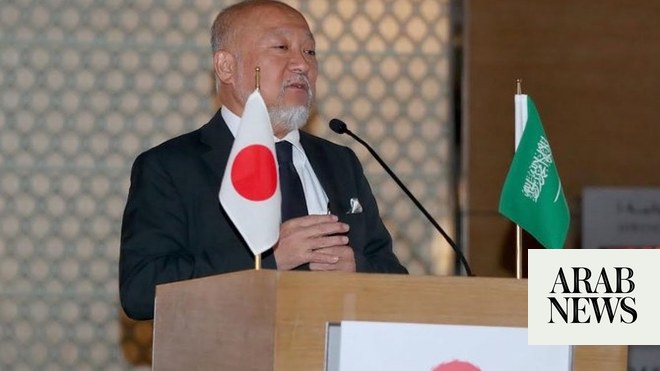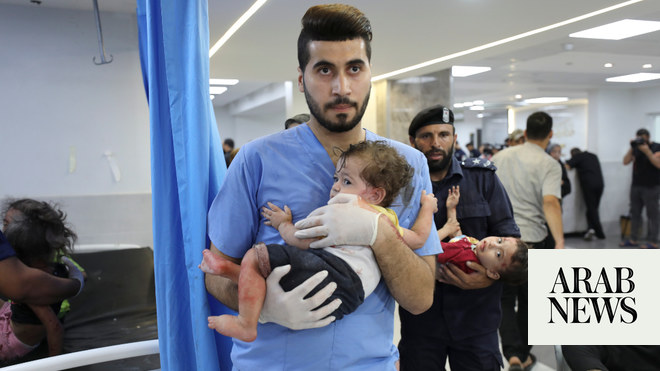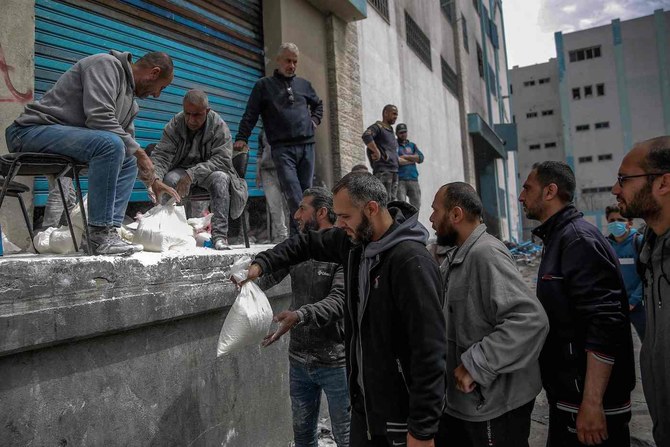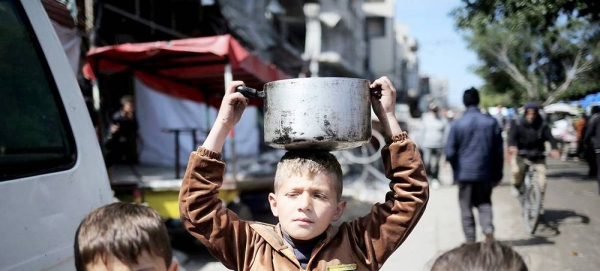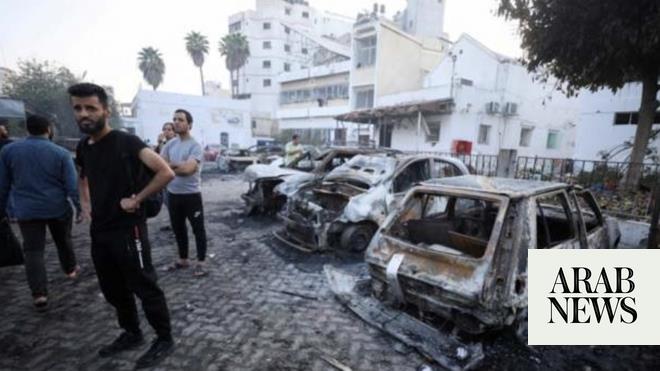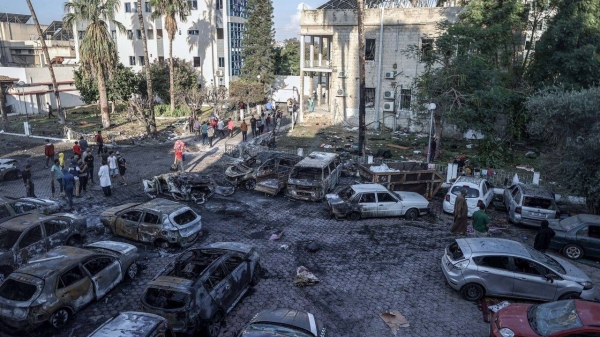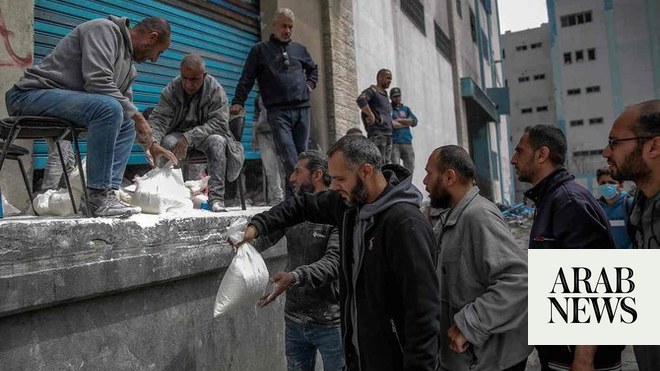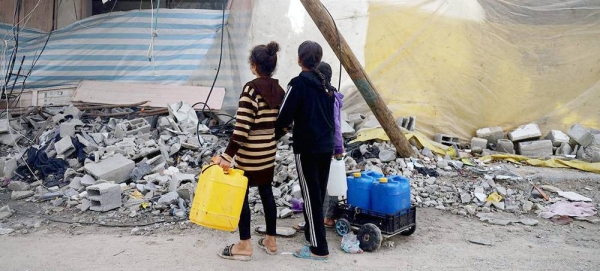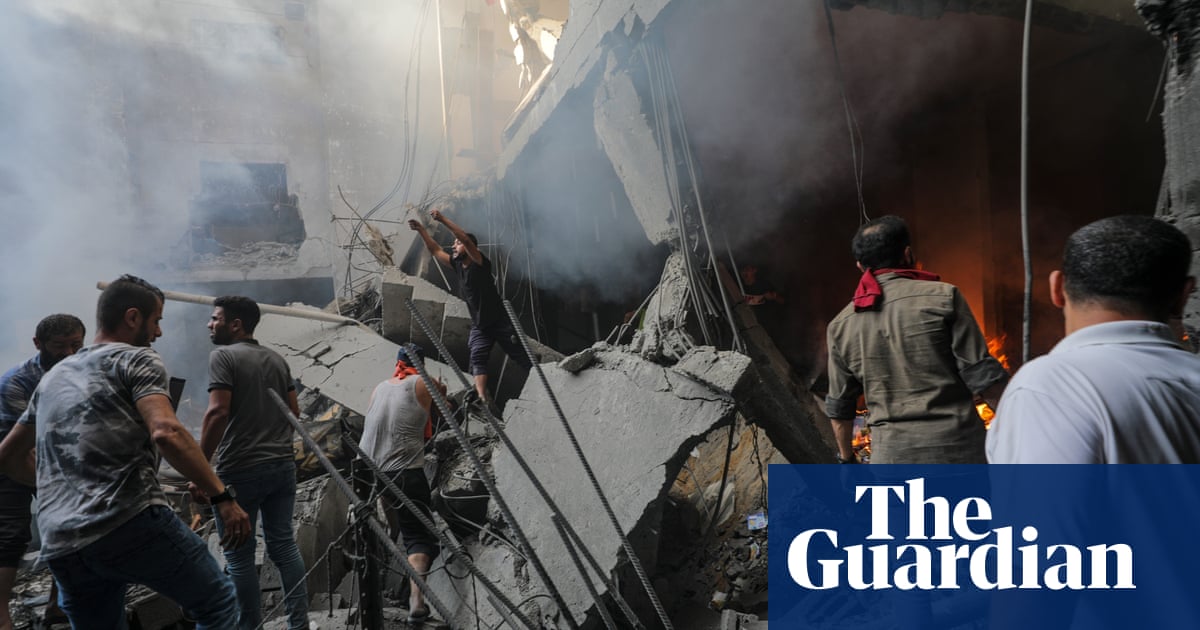
Aid flights have been arriving in Egypt’s Sinai peninsula with relief supplies for Gaza, amid diplomatic efforts to open humanitarian corridors into the besieged Palestinian enclave.
The US secretary of state, Antony Blinken, said during a tour of the region that the US was seeking agreement on establishing aid routes and safe zones. But by Saturday night, there was still no agreement on how to bring aid to the 2 million Palestinians under bombardment, as Israel laid the ground for an invasion of Gaza a week after a Hamas attack in which 1,300 Israelis and foreign nationals, mostly civilians, were murdered.
Blinken said he was also trying to ensure the conflict did not spread, on a day Iran’s foreign minister warned that Israel would suffer an earthquake if his country’s ally, the Hezbollah movement in Lebanon, became involved.
“I know about the scenarios that Hezbollah has put in place,” Hossein Amirabdollahian said in Beirut. “Any step the resistance [Hezbollah] will take will cause a huge earthquake in the Zionist entity.”
Amirabdollahian added: “I want to warn the war criminals and those who support this entity before it’s too late to stop the crimes against civilians in Gaza, because it might be too late in few hours.”
On Saturday night the US president, Joe Biden, stressed continued support for Israel as well as the need for humanitarian aid for Palestinian civilians in calls with the leaders of Israel and the Palestinian Authority, the White House said.
In his first call with Palestinian Authority president Mahmoud Abbas since Hamas’ attack on Israel a week ago, Biden offered his full support for “urgently needed humanitarian assistance to Palestinian people, especially in Gaza”.
“President Biden detailed US efforts to coordinate with partners to prevent the conflict from widening, and the two leaders discussed the need to preserve stability in the West Bank and the broader region,” the White House said in a statement.
The White House also said Biden stressed unwavering US support for Israel in his call with Benjamin Netanyahu, with whom he has spoken regularly since the attack. Biden also updated the Israeli leader on US military support and repeated his warning against any effort to broaden the conflict, it said.
Egypt controls the Rafah border crossing into Gaza, but under an agreement between Israel and Egypt after Hamas seized full control of Gaza in 2007, supplies entering from the south require Israeli approval. Since the Hamas attack last Saturday, Israel has cut off electricity and water to the territory.
Egypt has erected concrete barriers at Rafah, and its president, Abdel Fattah el-Sisi, this week restated his country’s long-held insistence that the Palestinians of Gaza “stay steadfast and remain on their land”.
The UN has appealed to Israel to rescind its order for more than 1 million Palestinians to leave their homes in northern Gaza and move into the southern part of the enclave before its expected ground assault. However, US officials told reporters on Saturday that Washington had not made the same demand.
They said the US had agreed with Egypt, Israel and Qatar, which retains close ties with Hamas, on a five-hour opening of the Rafah crossing on Saturday afternoon so that an estimated 500 Palestinians with American citizenship could leave. But the officials admitted it was unclear how many would be able to reach the crossing point, and whether Hamas would allow them to get there. They said Qatar was acting as an intermediary with the militant group in an effort to negotiate safe passage.
In Egypt, the state-owned Al-Qahera TV station, which is known to have strong links with Egyptian security agencies, quoted unnamed officials as saying the Egyptian government had made the delivery of aid to Gaza a condition for allowing the Palestinian-Americans to cross.
For the overwhelming majority of people in Gaza, such escape is not an option and their survival depends on humanitarian aid in the face of the expected Israeli onslaught.
The UN relief agency for Palestinian refugees (Unrwa) said its shelters in Gaza were no longer safe. “This is unprecedented,” Unrwa said in a statement. “Wars have rules. Civilians, hospitals, schools, clinics and United Nations premises cannot be a target.”
Blinken told reporters before a meeting with the Saudi foreign minister, Faisal al-Saud, in Riyadh, that the aim of his tour of the region was focused on protecting civilians from harm.
“As Israel pursues its legitimate right to defend its people and to try to ensure that this never happens again, it is vitally important that all of us look out for civilians,” the secretary of state said. “We’re working together to do exactly that, in particular working on establishing safe areas in Gaza, working on establishing corridors so that humanitarian assistance can reach people who need it.”
Blinken said that his regional diplomacy was also aimed at ensuring the conflict did not “spread to other places and other fronts”. Hezbollah has fired rockets across the northern border and warned that it would intervene if Israel launches a ground invasion into Gaza.
Before the Hamas attack, the US had been trying to seal an Israel-Saudi agreement to normalise relations, with incentives from Washington. That initiative, widely seen as a remote possibility even before the bloodshed of the past week, looked defunct on Saturday. Saudi officials were quoted as saying the initiative had been paused.
Amman announced on Saturday that Jordan’s King Abdullah was setting out on a tour of European capitals to build support to “end the war on Gaza”.
Two new aid flights arrived on Saturday at El Arish airport in Sinai, 45km from the Gaza border, and another three landed earlier in the week.
One of the flights, the World Health Organization (WHO) said, was carrying trauma medicines and health supplies.
“Every hour these supplies remain on the Egyptian side of the border, more girls and boys, women and men, especially those vulnerable or disabled, will die,” the WHO director-general, Tedros Adhanom Ghebreyesus, said in a statement.
Meirav Eilon Shahar, Israel’s ambassador to the UN agencies in Geneva, replied to the WHO chief on social media, insisting that Israel was taking “every feasible precaution available to mitigate unintended civilian harm”, including the dropping of leaflets and sending messages on social media warning people to leave northern Gaza. She blamed Hamas for using civilians as human shields.
Human rights lawyers say the forcible transfer for such a large population and the heavy bombing of residential areas could constitute war crimes, and the Israeli government has yet to allow humanitarian supplies to enter Gaza.
Philippe Lazzarini, Unrwa’s commissioner general, said that the enclave was running out of water due to a lack of fuel to run its water system.
“It has become a matter of life and death. It is a must; fuel needs to be delivered now into Gaza to make water available for 2 million people,” Lazzarini said.
“Fuel is the only way for people to have safe drinking water. If not, people will start dying of severe dehydration, among them young children, the elderly and women. Water is now the last remaining lifeline. I appeal for the siege on humanitarian assistance to be lifted now.”





